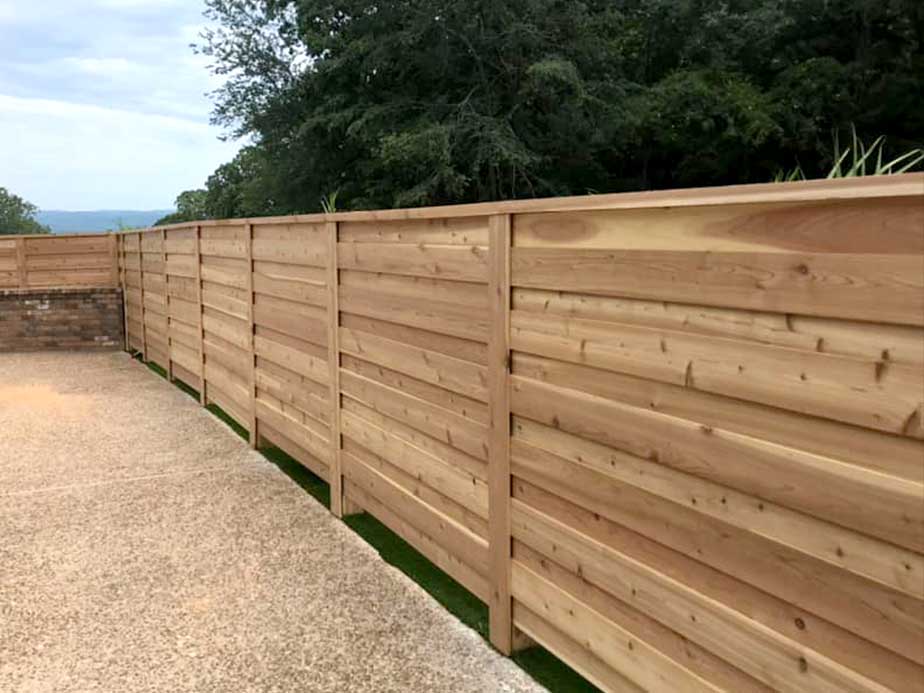All Categories
Featured

When it comes to choosing the most effective secure fencing product for toughness, wrought iron stands apart as one of the most resilient and reliable choices readily available. Known for its strength, visual allure, and capability to hold up against different climate condition, wrought iron is a prominent choice for both household and business homes. Just how does it contrast to various other secure fencing materials in terms of long life and efficiency? Let's take a more detailed consider functioned iron fencing and how it compares to options like light weight aluminum, vinyl, and wood.
Toughness and Longevity of Wrought Iron Secure Fencing. Unlike many various other fence choices, functioned iron can sustain extreme environmental conditions, consisting of severe warmth, hefty rainfall, and even strong winds. Since it is a metal, wrought iron is not vulnerable to the wear and tear that timber fencings commonly experience, such as rotting, warping, or insect invasions.
Sturdiness: Wrought iron fencings are incredibly difficult and can withstand effects and other types of physical stress and anxiety that may harm various other products. When appropriately preserved, they can last for 50 years or more, making them an investment that will certainly provide long-lasting value.
Wrought Iron vs. Wood Fence. Wood fencings, while traditional and cosmetically pleasing, usually call for even more maintenance and have a shorter life expectancy compared to wrought iron. Timber is at risk to rot, termites, and weathering gradually, all of which can compromise its structural honesty. Additionally, wood fencings may need to be replaced or fixed every 10 to twenty years, relying on the climate and the kind of wood used.
Upkeep: While wood fences need to be routinely treated with sealants, paints, or discolorations to maintain their look and durability, wrought iron fencings usually call for much less upkeep. They might require periodic cleansing or painting to protect against rust, especially in coastal or humid locations, yet they will not deal with the exact same sorts of destruction as timber.
Long life: While a well-kept wood fencing could last 20 to thirty years, wrought iron can surpass that life expectancy by numerous decades, making it an extra long lasting selection in the future.
Wrought Iron vs. Plastic Secure fencing. Vinyl fencing has come to be a prominent choice to timber because of its low upkeep and resistance to the components. Unlike wood, vinyl doesn't rot or warp, and it does not need to be repainted or treated. Vinyl can end up being breakable over time, specifically in regions with extreme winters or severe UV exposure. It may crack or damage under pressure, such as from a heavy impact or a severe tornado.
Durability: While vinyl is immune and rather sturdy to rot and fading, it still can not match the lasting strength and toughness of functioned iron. A plastic fencing may last around 20 to thirty years, depending upon ecological elements, but it does not have the structural integrity that wrought iron supplies.
Maintenance: Vinyl calls for marginal upkeep contrasted to wood, yet it can still discolor in time, specifically in locations with extreme sunlight exposure. Wrought iron might need occasional rust avoidance treatments however generally calls for less interventions than vinyl.
Wrought Iron vs. Aluminum Fence. Aluminum is one more steel choice to wrought iron, and while it shares several of the resilience traits of wrought iron, it is typically much less solid and sturdy. Light weight aluminum is extra light-weight and immune to rust and corrosion, making it a popular choice for low-maintenance fence. Nevertheless, it's not as strong as functioned iron and may be a lot more prone to nicking or flexing under stress.

Sturdiness: Wrought iron is substantially more powerful and a lot more resilient than aluminum. While light weight aluminum fences can last for a number of years, they may not hold up too in high-impact or high-traffic areas. On the other hand, wrought iron is a lot more resistant to physical damages and can much better withstand pressure and force.
Upkeep: Both wrought iron and aluminum fences call for some maintenance, mostly to stop corrosion. Aluminum is less most likely to rust than functioned iron, making it a more low-maintenance alternative in locations with high moisture or coastal salt exposure.
Final Ideas: Wrought Iron's Toughness Advantage. Wrought iron stands apart as one of the most sturdy fence materials readily available, surpassing wood, plastic, and light weight aluminum in terms of stamina, longevity, and total efficiency. While it does need occasional upkeep, specifically to avoid rust, its capability to hold up against extreme climate condition, physical stress, and the test of time makes it an excellent investment for companies and home owners looking for a long-lasting, safe and secure fencing service.
For those that prioritize stamina and long life most importantly else, functioned iron is an unsurpassable option. Whether you're protecting a property, improving the look of your backyard, or supplying security for a commercial website, wrought iron secure fencing will certainly provide decades of sturdiness and visual appeal that couple of other products can match.
Latest Posts
The Benefits of Consistent Vehicle Maintenance at Montclare Auto Repair Keeps Your Wallet Happy
Published May 22, 25
1 min read
Explore Trusted Auto Repair exclusively at Car-X – Get Back on the Road
Published May 21, 25
1 min read
Unlock WyHy Federal Credit Union – Financial Freedom for Your Goals
Published May 20, 25
1 min read
More
Latest Posts
The Benefits of Consistent Vehicle Maintenance at Montclare Auto Repair Keeps Your Wallet Happy
Published May 22, 25
1 min read
Explore Trusted Auto Repair exclusively at Car-X – Get Back on the Road
Published May 21, 25
1 min read
Unlock WyHy Federal Credit Union – Financial Freedom for Your Goals
Published May 20, 25
1 min read